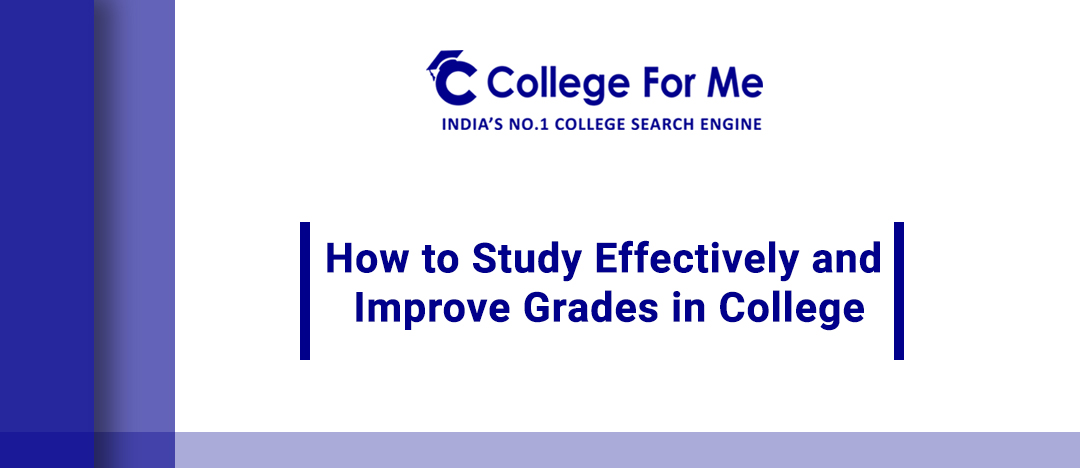Career Scopes Of A B.Tech. Student
There is a high demand for B.Tech. degree holders in the private sector, yet, there is also the opti...

College life can be overwhelming, with numerous academic and personal responsibilities competing for your attention. However, by adopting effective study strategies, you can optimize your learning experience and enhance your grades.
This blog post will provide you with practical tips and techniques to study effectively and improve your performance in college.
Establish a Structured Study Routine:
Creating a study routine helps in organizing your time efficiently and reduces procrastination. Set aside dedicated study hours each day and create a schedule that aligns with your natural productivity patterns. Be consistent and stick to your routine to cultivate discipline and maximize your study time.
Create a Distraction-Free Environment:
Find a quiet and comfortable place where you can concentrate without distractions. Put away your phone or use apps that limit social media usage during study sessions. Minimize interruptions from roommates or family members and let them know your study hours to avoid unnecessary disturbances.
Set Clear Goals and Objectives:
Define specific and achievable goals for each study session. Break down complex tasks into smaller, manageable parts, and prioritize your assignments accordingly. This approach helps you stay focused, track your progress, and maintain motivation throughout your study sessions.
Take Effective Notes:
Develop an effective note-taking system that works for you. During lectures, highlight key points, use abbreviations, and write down questions or areas of confusion. Review and summarize your notes after class to reinforce your understanding. Consider using digital tools like note-taking apps or voice recording to enhance your organization and accessibility of notes.
Actively Engage in Class:
Active participation during lectures improves your comprehension and retention of information. Engage in discussions, ask questions, and seek clarification on complex topics. This not only helps solidify your understanding but also demonstrates your commitment to the subject, which can be advantageous in building relationships with professors.
Utilize Different Learning Strategies:
People learn in various ways, so experiment with different techniques to find what works best for you. Some effective methods include visual aids (charts, diagrams), summarizing information in your own words, teaching concepts to others, and using mnemonic devices to remember complex information. Adapt your approach based on the subject matter and your personal learning style.
Form Study Groups:
Collaborating with classmates through study groups can be beneficial for understanding difficult concepts and gaining new perspectives. Discussing ideas, explaining concepts to others, and comparing notes can reinforce your understanding and fill in knowledge gaps. However, ensure that the study group remains focused and productive.
Take Breaks and Practice Self-Care:
Studying for long stretches without breaks can lead to diminishing returns. Instead, follow the Pomodoro Technique or similar methods that involve studying for concentrated intervals (e.g., 25 minutes) followed by short breaks (e.g., 5 minutes). Additionally, prioritize self-care activities like exercise, proper sleep, and maintaining a healthy diet to optimize your focus and overall well-being.
Review and Revise Regularly:
Avoid last-minute cramming by reviewing your notes regularly. Regular revision helps reinforce information, identify areas of weakness, and fill knowledge gaps before exams. Plan ahead and allocate dedicated time for review sessions, focusing on challenging concepts and practice questions.
Seek Help When Needed:
Don't hesitate to reach out for help if you're struggling with a particular subject or assignment. Utilize resources like professor office hours, tutoring services, study workshops, or online forums. Proactively seeking assistance can provide valuable insights, clarify doubts, and ultimately improve your understanding and grades.

There is a high demand for B.Tech. degree holders in the private sector, yet, there is also the opti...

If you are looking for a bright and prospective career, then getting a B.Tech. in CSE must be under ...
Comments (0)